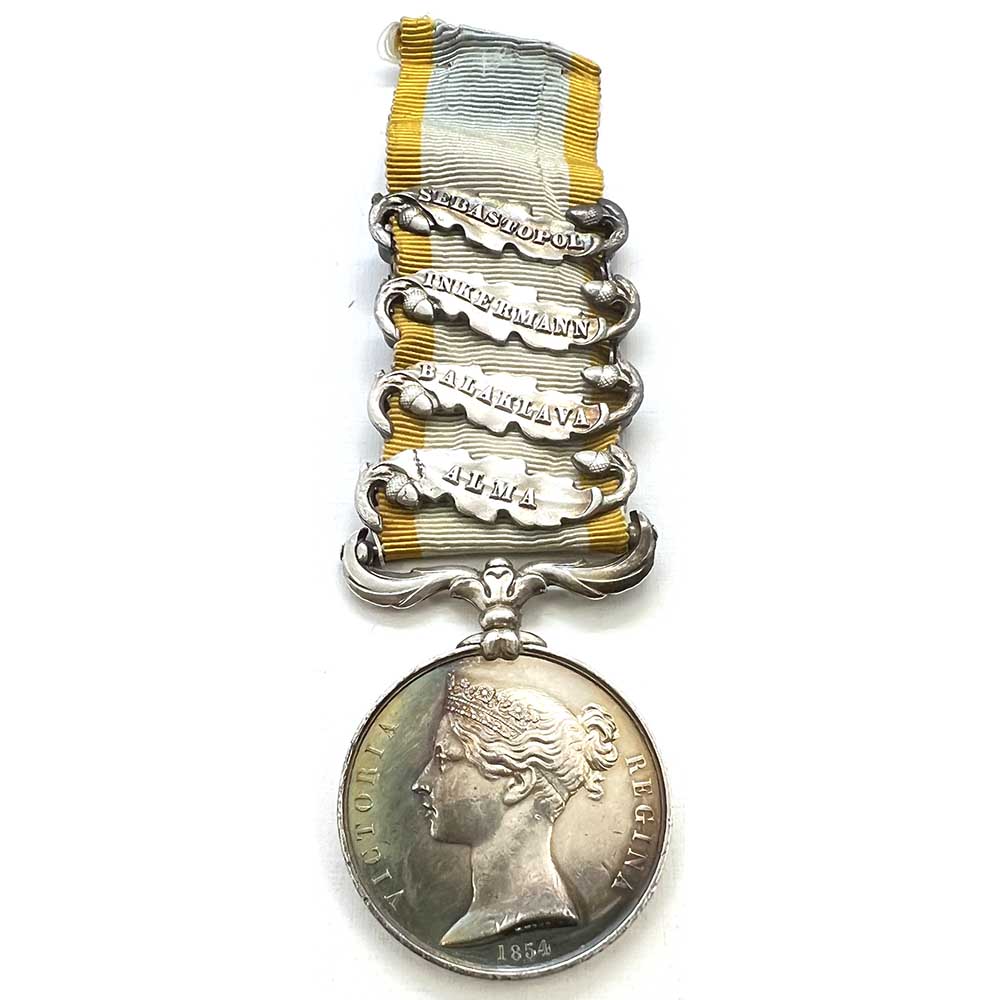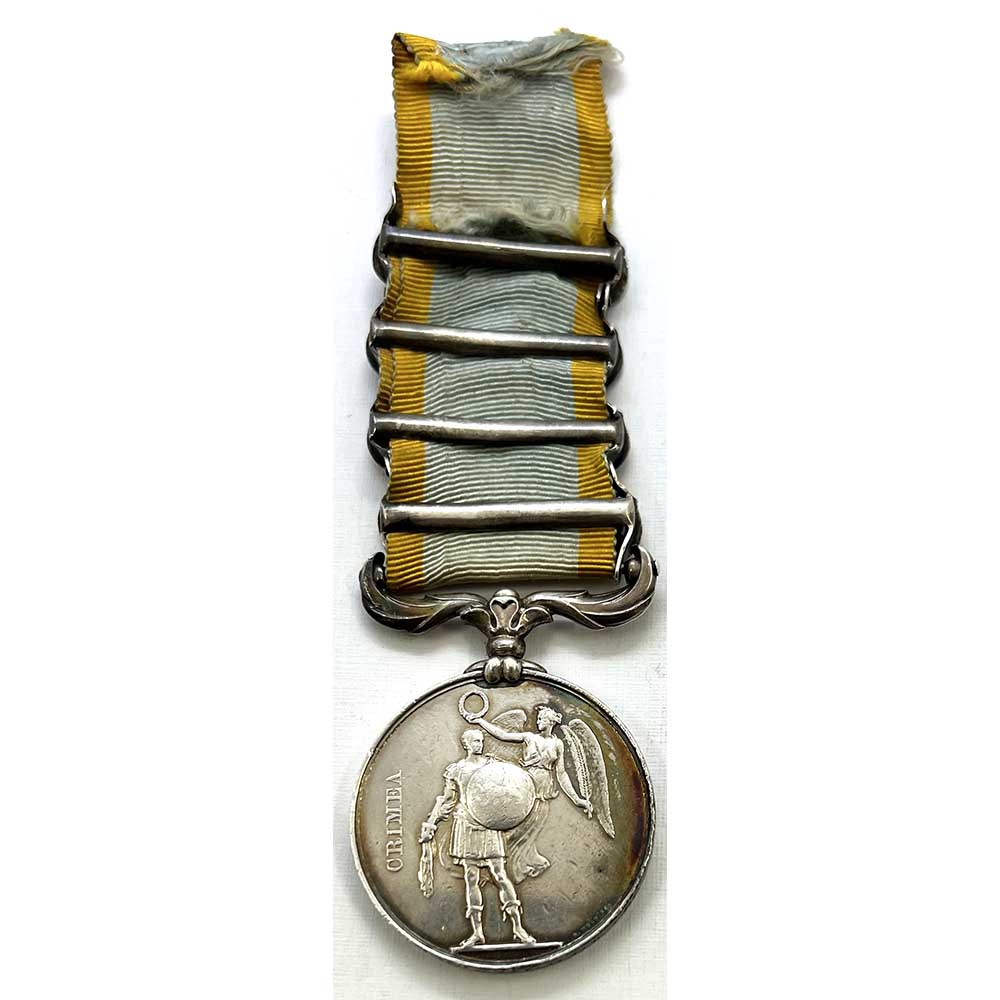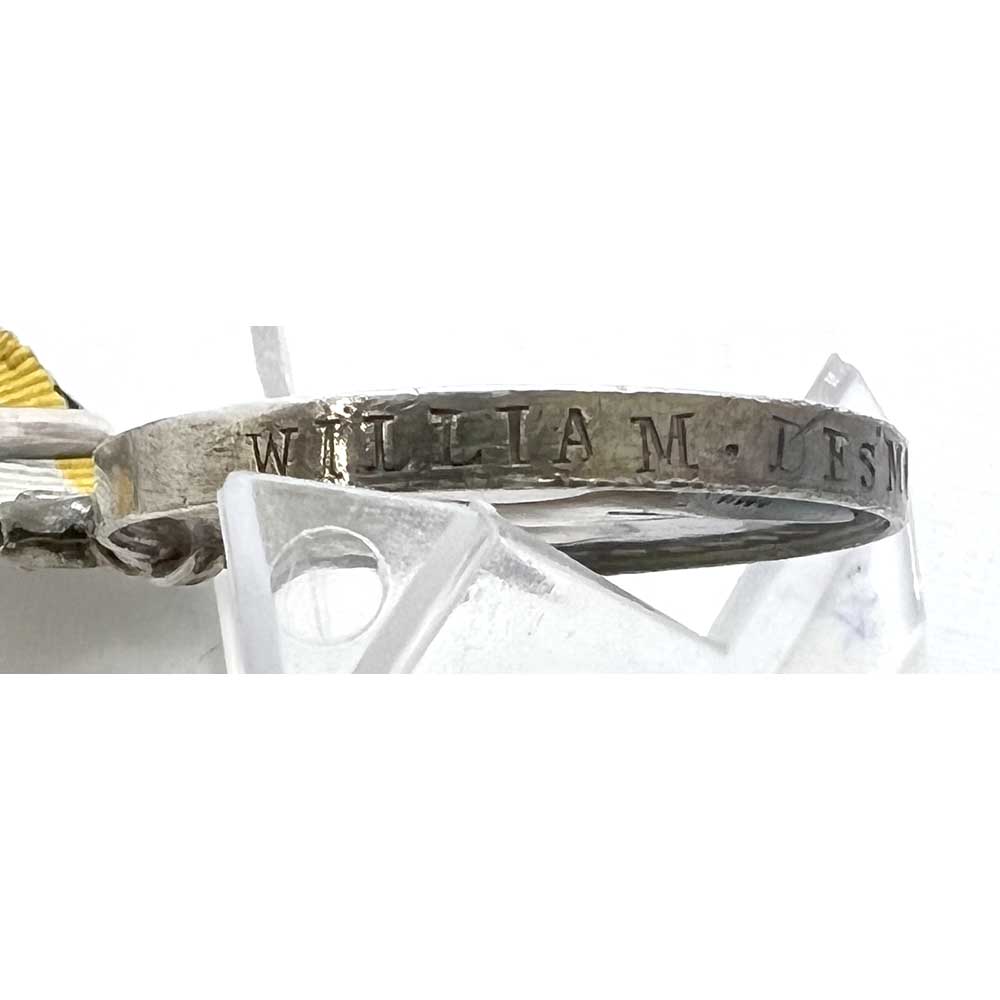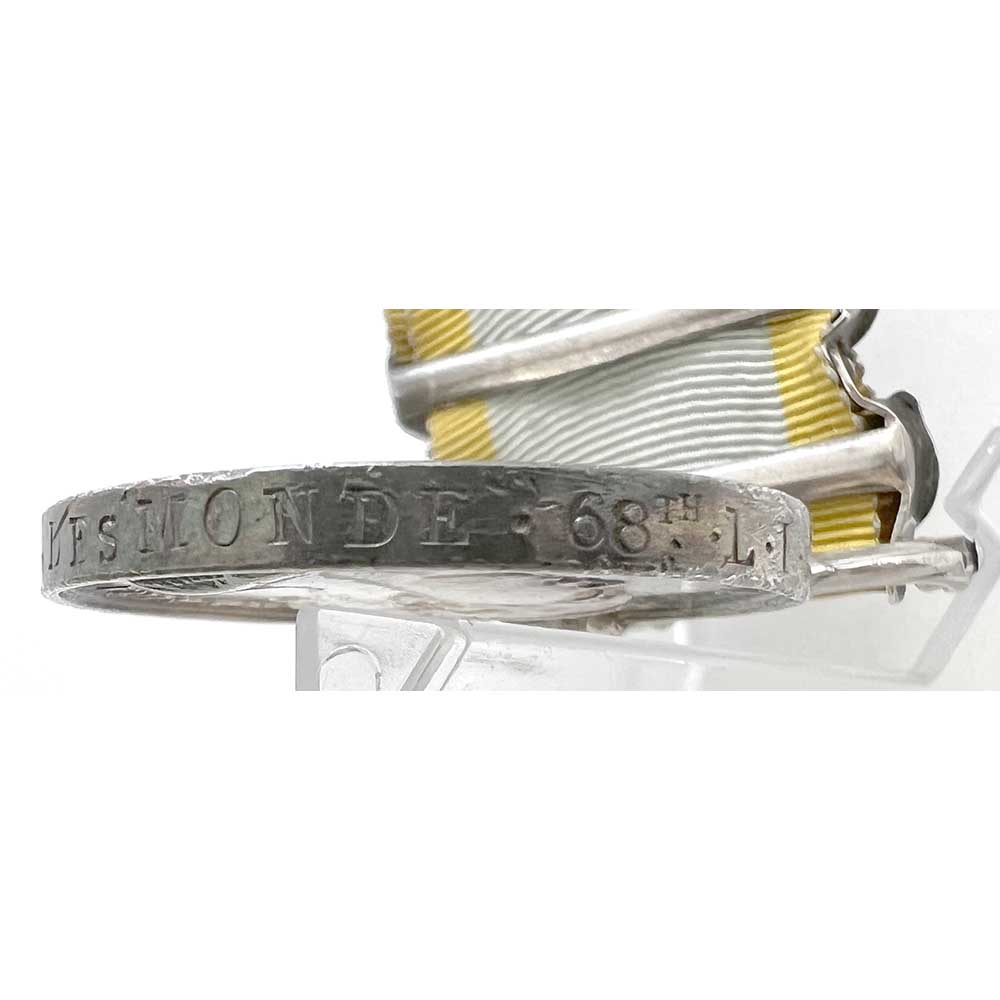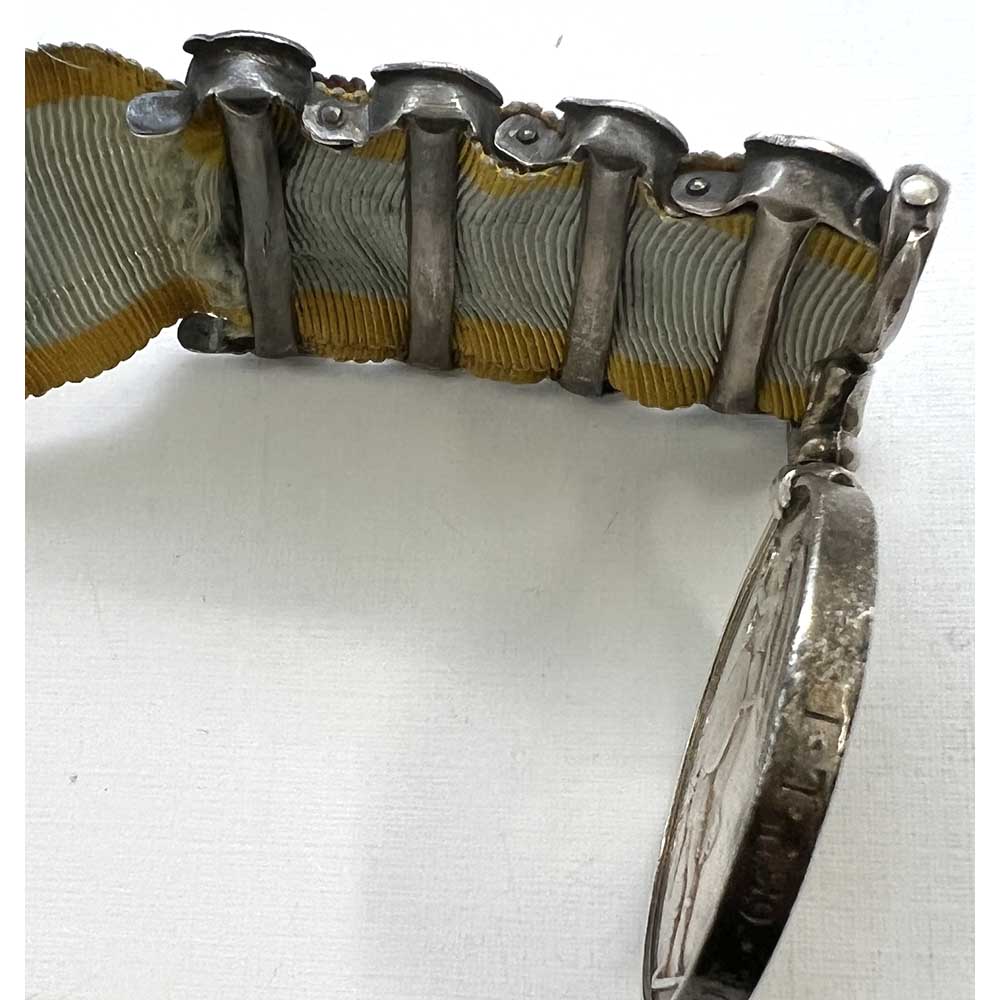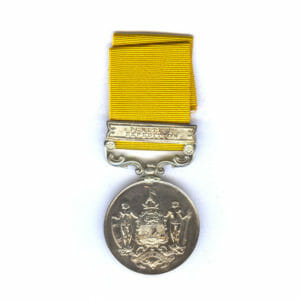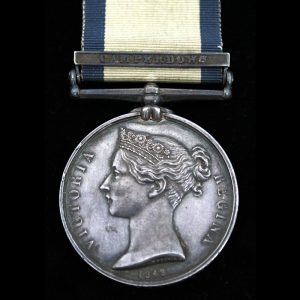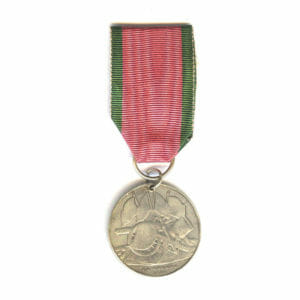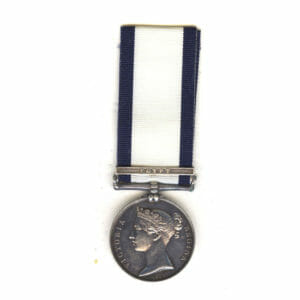Description
Crimea Medal, 4 bars, Alma, Balaklava, Inkermann, Sebastopol, William Desmond, 68th Durham Light Infantry.
Depot impressed naming in neat style: “WILLIAM DESMONDE. 68th L.I.” With old silk ribbon.
Light contact marking and general signs of wear.
William Desmond, an Irishman from Cork, was a serially misbehaving drunken soldier, when he was discharged following a lengthy 21 years army career during which he took part in all the battles of the Durham Light Infantry in Crimea and earning a rare all 4 clasps to his Crimea Medal, he was found to have been court martialled no less than 6 times with 71 entries in the Regimental Defaulters Book, with not a single good conduct badge to his name.
Upon being discharged at Fermoy, he chose to move overseas and settled near Dunedin in New Zealand when one day on the 8th January 1880 he turned up dead, having stumbled into Dunedin Hospital, severely drunk, complaining of a pain in his head and having fallen, he died from epilepsy soon afterwards.
The local had been known around town as a bit of a drunkard having been brought up in the local court during 1878 for being Drunk in the City, and Dr Roberts, House Surgeon of the Dunedin Hospital had run ins with him in the past stating at the inquest: “I knew the deceased, as he had been frequently a patient of the Hospital, from which I believe he had been dismissed from drunkenness.”
What had actually happened that day, was that he had been drinking his sorrows away for well over a week by this point, he was newly separated during that time from his wife, Jane Desmond, one day he had become jealous of her “without the slightest cause and scandalised me all over the town” according to his wife’s testimony and left their home.
That day he had gone into James Neil’s Shop, a druggist and dealer in medicines, and purchased a shilling’s worth of “Battle’s Vermin Killer”, claiming that his new house he had moved to was full of rats. Mr Neil sold him a shillings worth of the poison which contained Strychnine, after not even declaring the sale in the poison book of the poison contrary to the Poison Act and not questioning the sale, he was later reprimanded.
The drunken William stumbled into a Martha Hanna’s house asking for a glass of water, returning with “a packet of powder in his hand” which was clearly marked poison leading to her intervening and tossing the contents of the cup into her fire before he got up and scurried away.
William later that day would be found on the street drunk and poisoned, by an Expressman, Louis M’Farlane who delivered him to Dunedin Hospital after he told him he had poisoned himself.
He died later that day “The jury found that the deceased’s death had resulted from Epilepsy, occasioned by heavy drinking, and accelerated by his taking poison. They were further of the opinion that druggists should not sell poison such as was contained in the vermin matter sold by Mr Neil in this case without greater caution.”
William Desmond was born in Cork, Ireland, circa 1820-24. Service number 1467.
He served in the army with the 14th Foot and 68th Durham Light Infantry over 21 years from 1838 until 1860.
Throughout his 21 years, he had spent 14 years overseas, comprising of 2 years 4 months in the West Indies, 6 years 1 month in America, 2 years 6 months in Malta, 1 Year 10 months in Crimea during the War and 1 year 5 months in the Ionian Islands.
Upon his discharge, his service was stated by the board as simply: “They have been bad”
“He is not in possession of any good conduct badges, he has received a medal with the 4 clasps for Alma, Inkermann, Balaklava and Sebastopol and a Silver Medal granted by the Sultan of Turkey for services in the Crimea.”
“He has been 6 times tried by court martial and his name appears 71 times in the Regimental Defaulter’s Book.”
William first attested for service as a Private in the 14th Foot on 6th March 1838.
From 1838 to 1854 he was imprisoned 6 times, mostly in the Guard Room, with one term in a Canadian civilian prison.
He spent 1841-1847 on service in Canada, where the regiment was stationed in Quebec, during which time the regimental history notes them witnessing the two great fire of Quebec in 1845 which scorched thousands of homes, the Army managed to place some strategic gunpowder barrels with the Royal Artillery to stem the spread of the fires.
On 21st July 1854 he first volunteered at Malta to transfer to the 68th Durham Light Infantry.
He sailed with the regiment for Crimea where he would take part in a significant number of battles during the war.
Amongst the awards earned by this regiment in Crimea, was 2 Victoria Crosses, with another 9 being applied for but not approved. The award of 15 Distinguished Conduct Medals, 7 Legion D’Honneurs, 13 Orders of the Medjidie, 6 Italian Al Valore Medals and 7 French Medaille Militiares.
The Inkermann clasp was particularly hard won, with only 243 Men of the 68th present from 4 companies, during the battle they pressed deep into the enemy, expending all their ammunition and pushing back the Russian infantry, they went too far and upon attempting to retreat, they found themselves in a ravine surrounded by Russian soldiers, they were rescued from certain death by the French Zouaves.
During the action in the ravine Pte John Byrne and Sgt Daniel Dwyer were both awarded Victoria Crosses for returning to rescue wounded comrades.
Captain Horario Morant, 68th Regt wrote: “The French Zouves saved the 68th from being totally annihilated. The ‘Light Bobs’ having followed the Russians into the valley, whence ascending they found themselves confronted by the grey clad warriors.”
Whilst still in Crimea, he transferred back to the 14th Foot on 16th January 1856 for the end of the war and remained with the regiment until his discharge during July 1860.
William Desmond died on 8th January 1880 in Dunedin, New Zealand and is now buried in the Southern Cemetery, Dunedin, Otago, New Zealand, Block 112, Plot 10.
